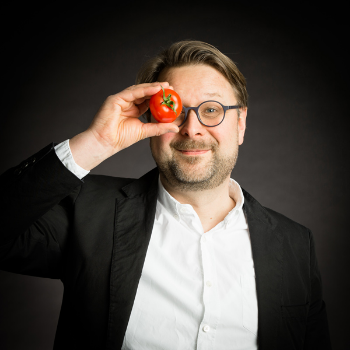
The supply of tomato products is secured from our side. Tomato paste as well as the classics peeled tomatoes and pizza sauce are finally available again from new harvests. We have reacted in time and have been on the lookout worldwide for the sought-after products.
However, our favorite product, the tomato, has given us a real headache this time - we have repeatedly reported openly and honestly about the challenges of this season: Drought in southern Europe, the loss of Ukraine as a producer of tomato paste, skyrocketing prices for energy (especially gas) and packaging, political instability in Italy, uncertain yields ... The gas price trend also poses major problems for suppliers to the factories (labels, cartons, plastic, jars...), which also consume a lot of energy during production.
An explosive mix, which together has now already led to price explosions of over 100% for the 2650 ml peeled tomatoes compared to last year.
There are hardly any alternatives. Tomato products from Turkey or Greece are also already "horrendously expensive", our partners report. One producer complains that the price situation is out of control. Not only because of high production costs, but also because there is simply a lack of basic materials (for the production of tomato paste, dried tomatoes, pizza sauce).
What's next? In Portugal and Italy, if the weather doesn't put a spanner in the works, the harvest will run until the beginning of October. There is sufficient raw material available for processing. In the north of Italy there is more (about 2.8 million tons), in the south less (max. 2.6 million tons) this year. The catering business is increasingly looking for the 3-kilo can (peeled tomatoes and diced tomatoes) and the processing industry is looking for barrels with all tomato varieties, but there are hardly any offers for these. Small cans (e.g. 425 ml) are on offer - for the most part also leftover stocks from the previous year, because the orders of many customers from the supermarket segment had been too optimistic at lockdown time.
With Conesa, one of the leading processors of tomato products on the Iberian Peninsula, we have, among others, a top partner that processes over 340,000 tons of fresh tomatoes per harvest. The company has locations worldwide. PMM has worked with the long-established Conesa offshoot (formerly Sopragol) in Mora, Portugal, for decades.
The manufacturer has long specialized in producing tomato products in barrels there, in addition to cans (5 million units). Certainly, fully preserved canned food makes sense in the kitchen in times of high energy costs, since it can be stored without cooling. We stand by it, that's where PMM's roots lie. However, the trend must go towards alternative packaging, as the tinplate can, despite unbeatable production efficiency, will soon become unaffordable compared to the pouch.
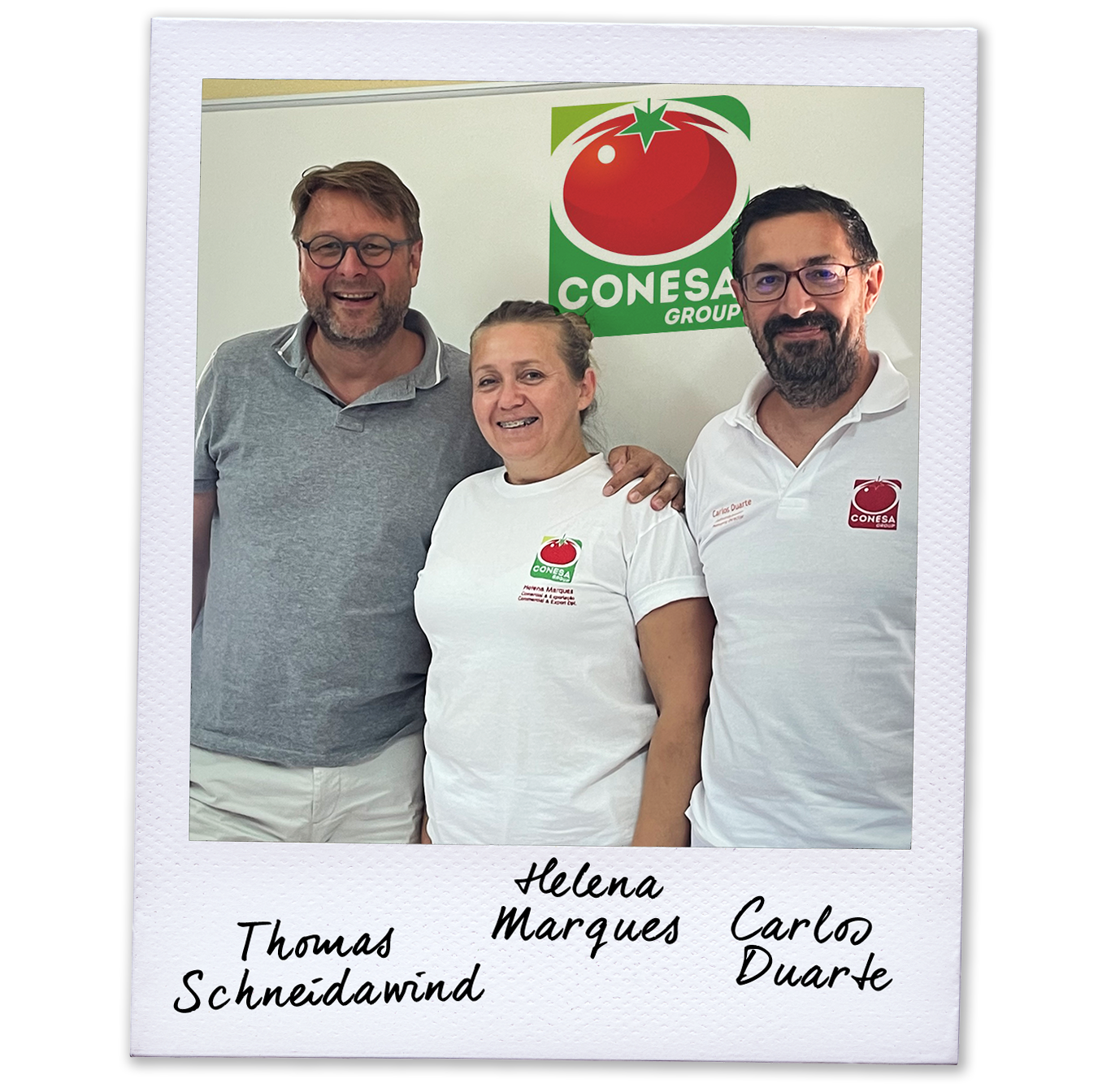
PMM has therefore launched the 5x3 kg pouch with ADRIA pizza sauce as a new product from another top Portuguese manufacturer. This will be the future, whether we like it or not, we also have to break new ground with this product. It's worth testing!
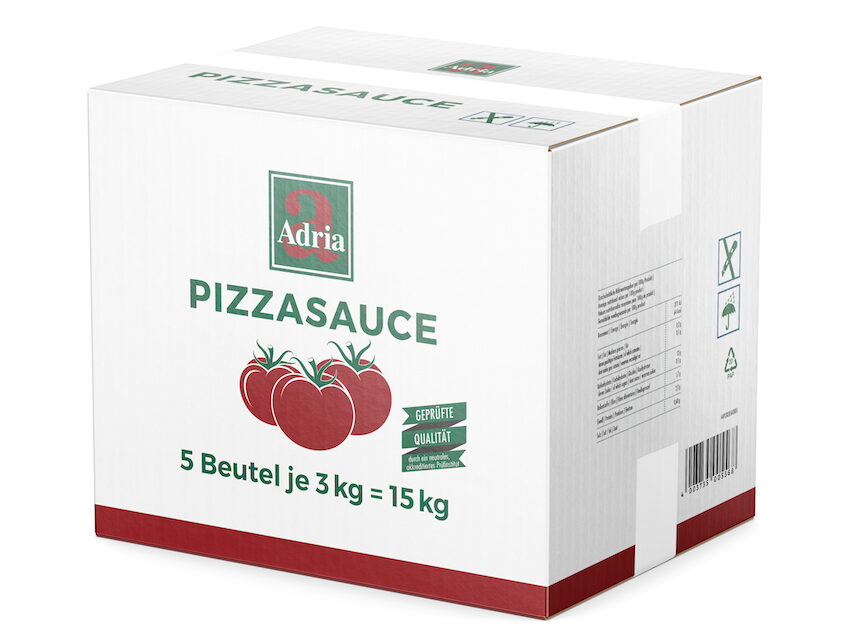
The hot pepper harvest in Turkey has been completed, while the bell pepper harvest will continue until mid-October. For jalapeños, there was a bumper harvest this season - with the result that after the run on them, everything was sold within a very short time.
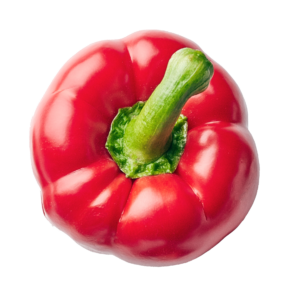
In detail: For hot peppers müs we have to state a poor harvest result. Less yield in the fields forüThis has led to a "haggling over raw produce", as market experts report. We are seeing the same scenario with peppers. This mainly affects the Topa (round bell pepper) and Kapia (pointed bell pepper) varieties. Background: Producers of paprika pulp are currently looking for as much raw material as möbecause the market price for theür bell pepper market has become interesting. We had already anticipated this turbulence in the July PMM Market Report. Für all bell pepper products now shows a spürable price increase. Last but not least, the problem of dramatic cost increases for energy, electricity and water is also making itself felt on the Bosporus.öhnen and packaging material always stäThe effects of the crisis are becoming more noticeable. In addition, galloping inflation in the country (officially 80%; unofficially triple digits) is fueling the critical development on the producer side. PMM will also have to take this into account.üssen.
Final spurt for Peach-products: After this year's raw material (mainlyäThe production of peaches in Greece, which was very small, was very good.ür the preparation of peach slices and Würfeln smaller quantities than üavailable for theügung. Hail and bad weather have affected the so-called mountain peaches, which grow at about 1000 meters Höhe are grown to almost 70 % beschädigested or destroyed. This variety was therefore more likely to Püree or concentrate and less was canned. Under the given conditions, market experts still speak of "normal production" overall, although this is once again influenced by known cost factors (energy, cans, labor costs, etc.).öhne). A current double-digit inflation in Greece düshould also beätion, which can have a price-increasing effect on production.
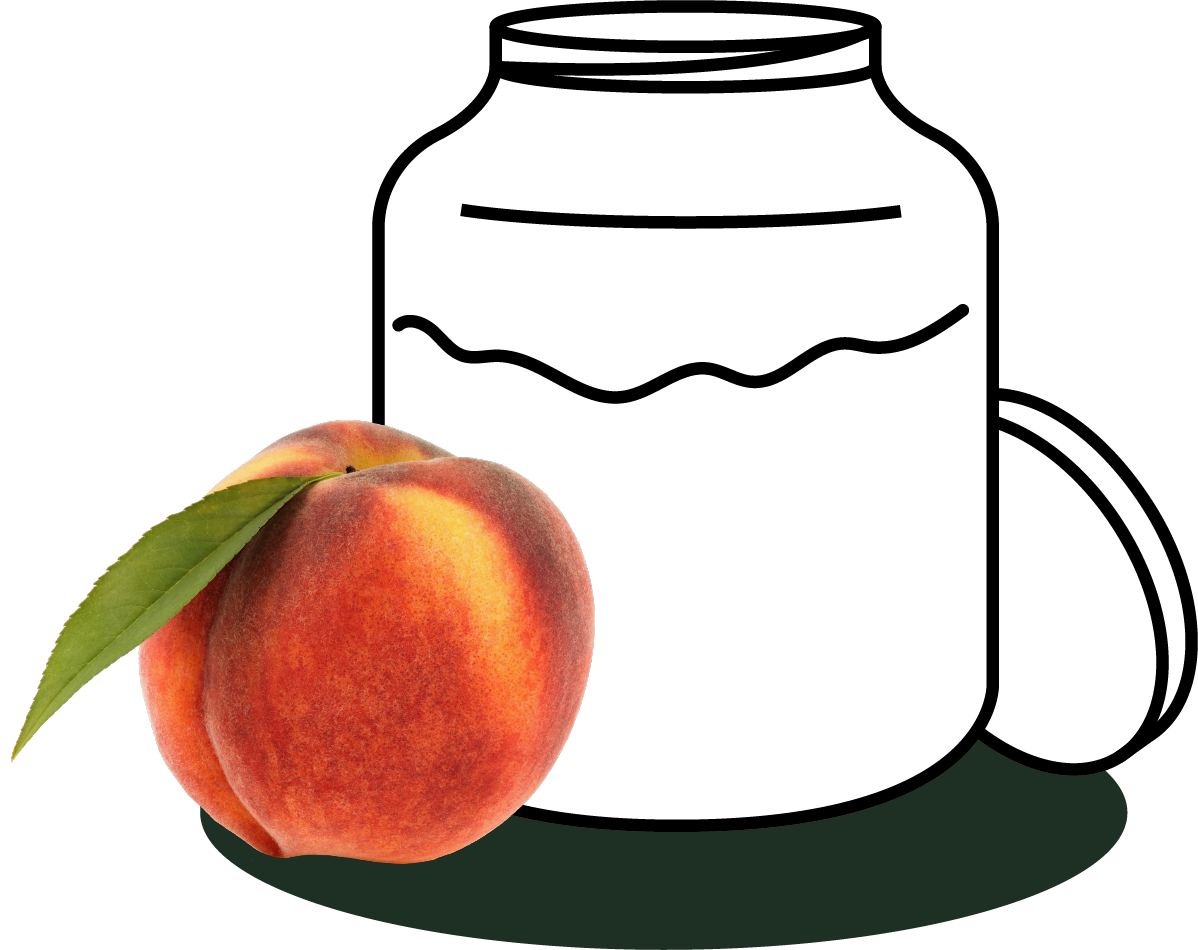
An exciting development is emerging in the case of pears: More fruit trees are being planted in Hellas every year. Market observers assume that in the medium term, the aim is to compete with Italy as a source of pears in terms of both quantity and quality.
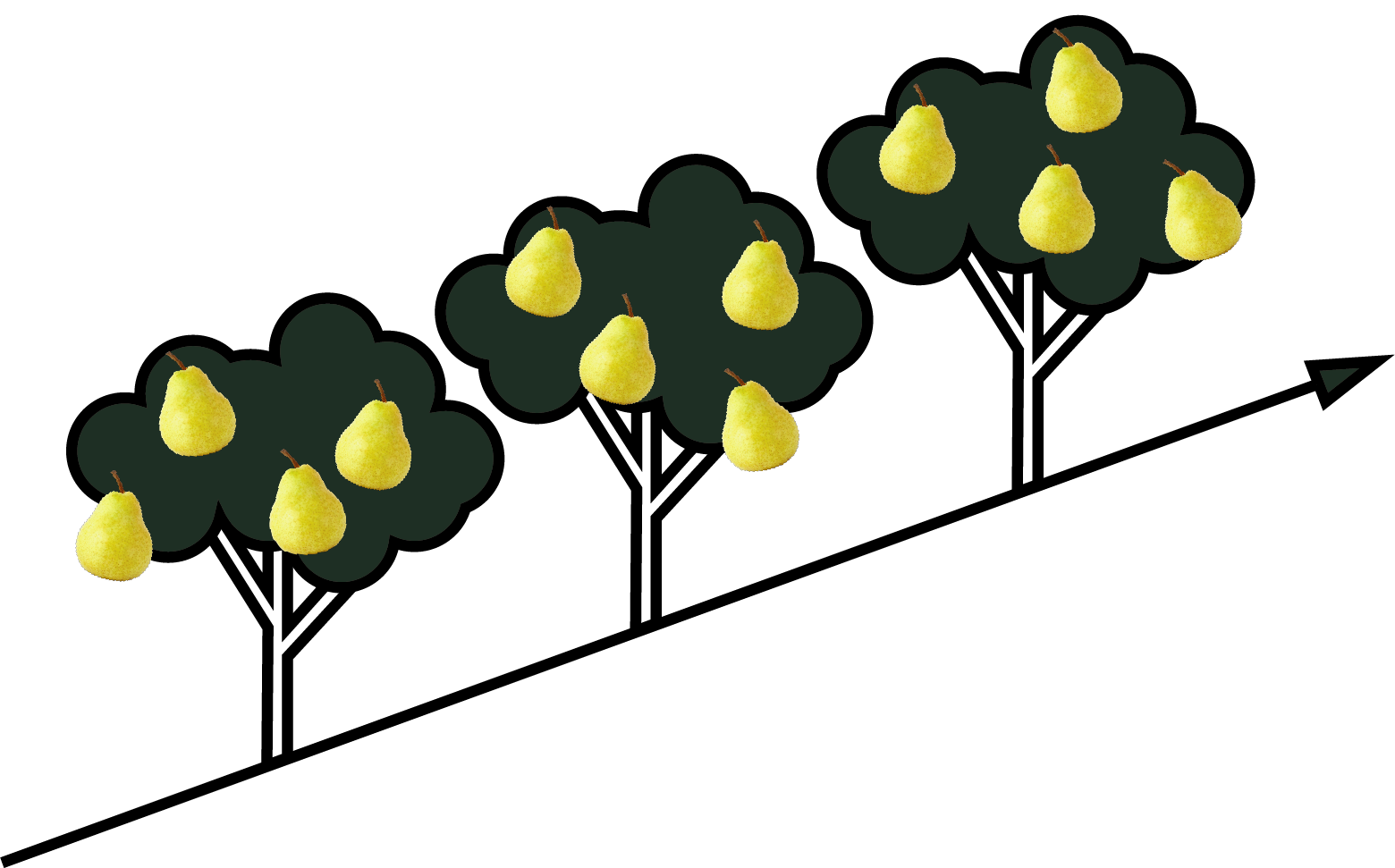
We anticipate sales problems with our fruit cocktail. Sales are expected to be even lower than in the previous year. The reason for this is the increasingly expensive ingredients for the end product (five ingredients: pineapple, pear, cherry, peach and grape). Due to the highly strained financial situation in which many catering businesses (but also private households) find themselves, it is almost impossible to implement higher retail prices.
The tuna business continues to be characterized by lively ups and downs. Traditionally, demand for tuna picks up strongly again worldwide in October.
Currently, the raw material price für the Skipjack (SKJ) variety at the trading place Bangkok (BKK) and in Papa New Guinea (PNG) at 1800 US$/t. Manta (Ecuador) is currently paying 1900 US$/t. In FrüIn the first half of the year, the price in Bangkok and Manta füfor one ton of SKJ (which is also known as "skipjack tuna"), however, is already just under 2000 US$.
Until the end of September, a three-month "FAD ban" (fishing ban between July and September) still applies in the largest fishing area in the Western Pacific (FAO 71). This means that the Fishing with decoy buoys is prohibited during this period. In addition, there was recently bad weather and high operating costs (dieselöl) for ship owners, so that fewer ships were at sea. All this together füled to even lower catch results in August in fishing area FAO 71 compared to the same month last year (-50%). In September it looks ähn similar. Market insiders believe that catch quotas in August and September will determine the price until the end of the year. So as soon as demand picks up, the price will also climb. This will be in the fall at the latest, when traditionally the big tenders come from the retail sector, which will then meet a lower market supply. Another price driver is the poor euro/dollar exchange rate, which imports inflation into Europe. For alles, what in US$ is to be paid, additionalätionally due to the weak euro expensiver ...
Market insiders believe that catch quotas in August and September will determine the price until the end of the year. So as soon as demand picks up, the price will also climb. This will be in the fall at the latest, when traditionally the big tenders come from the retail sector, which will then meet a lower market supply. Another price driver is the poor euro/dollar exchange rate, which imports inflation into Europe. This is because everything that has to be paid for in US$ is additionally made more expensive by the weak euro ... According to our latest information, the producers of canned tuna are already sold out until December. Negotiations are currently underway for shipments for January and February 2023. But don't worry: We are well stocked with top quality tuna (in the durable can and as a space-saving pouch pack). Just ask our PMM experts directly.
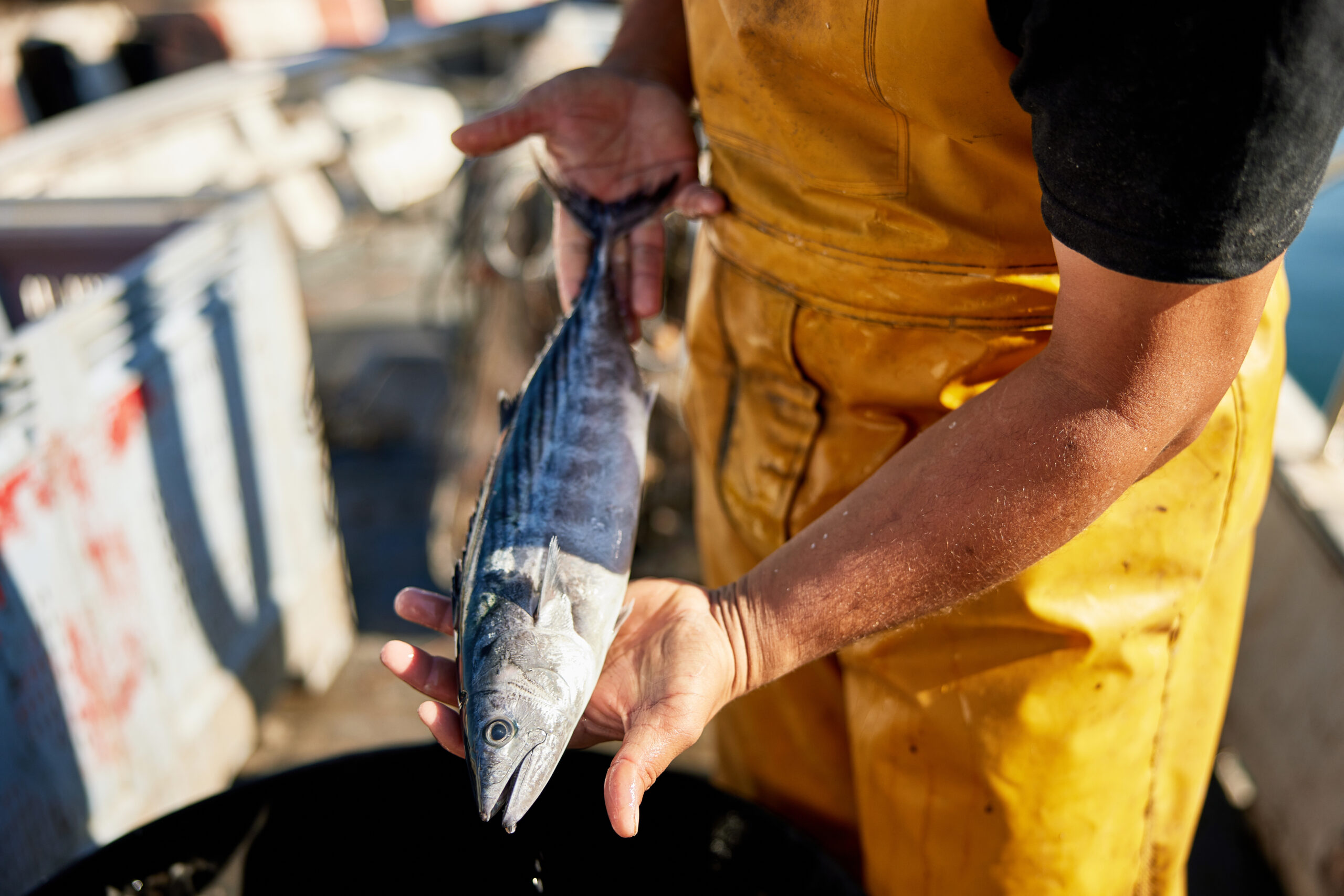

Paul M. Müller
Mr. Sperr, you love to serve your guests, so the ingredients have to be right and taste good. Why did you choose the ready-made tomato sauce Salsa Pronta from ADRIA-Premium at Gasthof Rössle?
Lutz Sperr:
Honestly, I think the product is just great. I open it up and it tastes good. For example, I want to make something vegetarian. So I prepare a vegetable strudel, make the Salsa Pronta hot and let it thicken briefly. It tastes exactly like a tomato sauce that I cooked myself. In terms of taste, it is very well balanced - you do not even need to add salt.
But don't you like to cook your own tomato sauce?
This is usually even cheaper, of course. We used to cook our own tomato sauce, then freeze it as a 2-kilo package and give it out when we needed it. Now we open the salsa pronta cans when things get stressful - it makes it easier. I use them for all sorts of things and cook them all over the place. Even when I have other tomato cans available.
For example?
When I prepare lasagna, for example, or recently also for dressing a Bolognese sauce with meat from own slaughtering, I cook that with Salsa Pronta. I order the cans from Paul M. Müller through a wholesaler from the service association, and I can use them for so many things, which is really great. You can count on it.
What do you associate with the name "Salsa Pronta"?
Actually nothing! It was like this: I got the cans to test, opened and tasted them. It was delicious! It's as simple as that. The name per se is not a motive for me to buy something. I had a chance to try the product and it tasted good. That's it!
This is how a contemporary convenience product should be ...
Yes, and this one is also high-quality. I was wondering, if I cooked the tomato sauce myself, would it be better? Probably not. For us, it's brilliant. In stressful situations, when three cooks are down, I'm grateful to have something to help. I'm sure the guest will enjoy it.
At what moment did you appreciate the product the most?
Definitely during the corona pandemic and when many employees are absent. But that shouldn't stop you from doing a good job in the kitchen. However, serving 120 lunches at the highest level is not something you can do just like that.
Thank you for the interview.
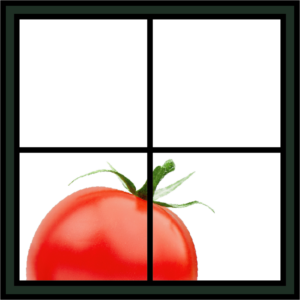
Almost unnoticed, China keeps imposing massive lockdowns across cities (with millions of inhabitants) such as Chengdu and provinces, even if only a handful of Covid cases have occurred - parts of Inner Mongolia have just been hit. The entire Xinjiang region has been in lockdown since August 10. This has just forced four tomato paste producers in the south of the province to shut down their operations completely. The severe restrictions due to the "zero Covid policy" could continue there until September 20. There are fears of an impact on supply, as China is a global player when it comes to tomato paste.
The Bundesverband Güterkraftverkehr Logistik und Entsorgung (BGL), the German Road Haulage, Logistics and Disposal Association, is sounding the alarm: SKW Stickstoffwerke Piesteritz GmbH, Germany's largest AdBlue manufacturer, had stopped production in mid-August until further notice due to high gas prices. Now the urea AdBlue, without which no modern diesel engine runs, is in short supply. "No AdBlue means no trucks. And that means no supply in Germany," warns the BGL.


... We won't let that stop us. Lederhosen on, moustache trimmed, dirndl on and good mood packed - let's go to the biggest folk festival in the world on September 17. After a two-year coronavirus break, the Oktoberfest in Munich is finally taking place again (until October 3). Paul M. Müller will of course be there.
We are looking forward to it and to our loyal guests!
Although we rate the sources we use as being reliable, we cannot accept any liability
for the information provided here being complete or correct.
You want to tell us a story or share experiences from the industry? Do you have feedback for us? Photos or stories? We would like to invite you to actively shape the PMM Market Report, and we welcome every contribution, suggestion and criticism. THANK YOU for taking the time to read and be a part of our PMM community.


We provide you with fresh industry news and informative interviews - just enter your name and e-mail address and click on "Subscribe"!
you can reach us Monday - Friday from 7:30 - 17:00.
